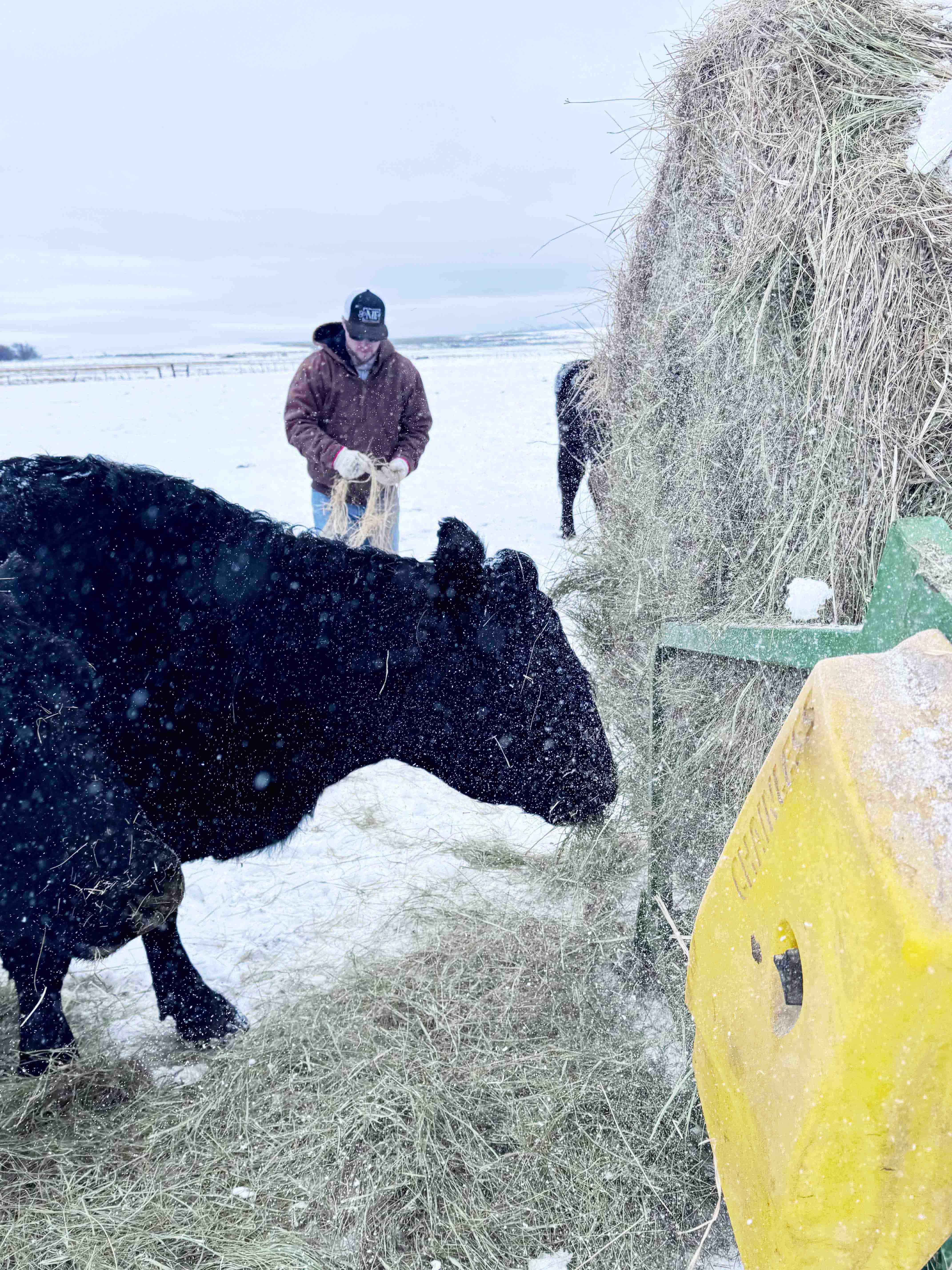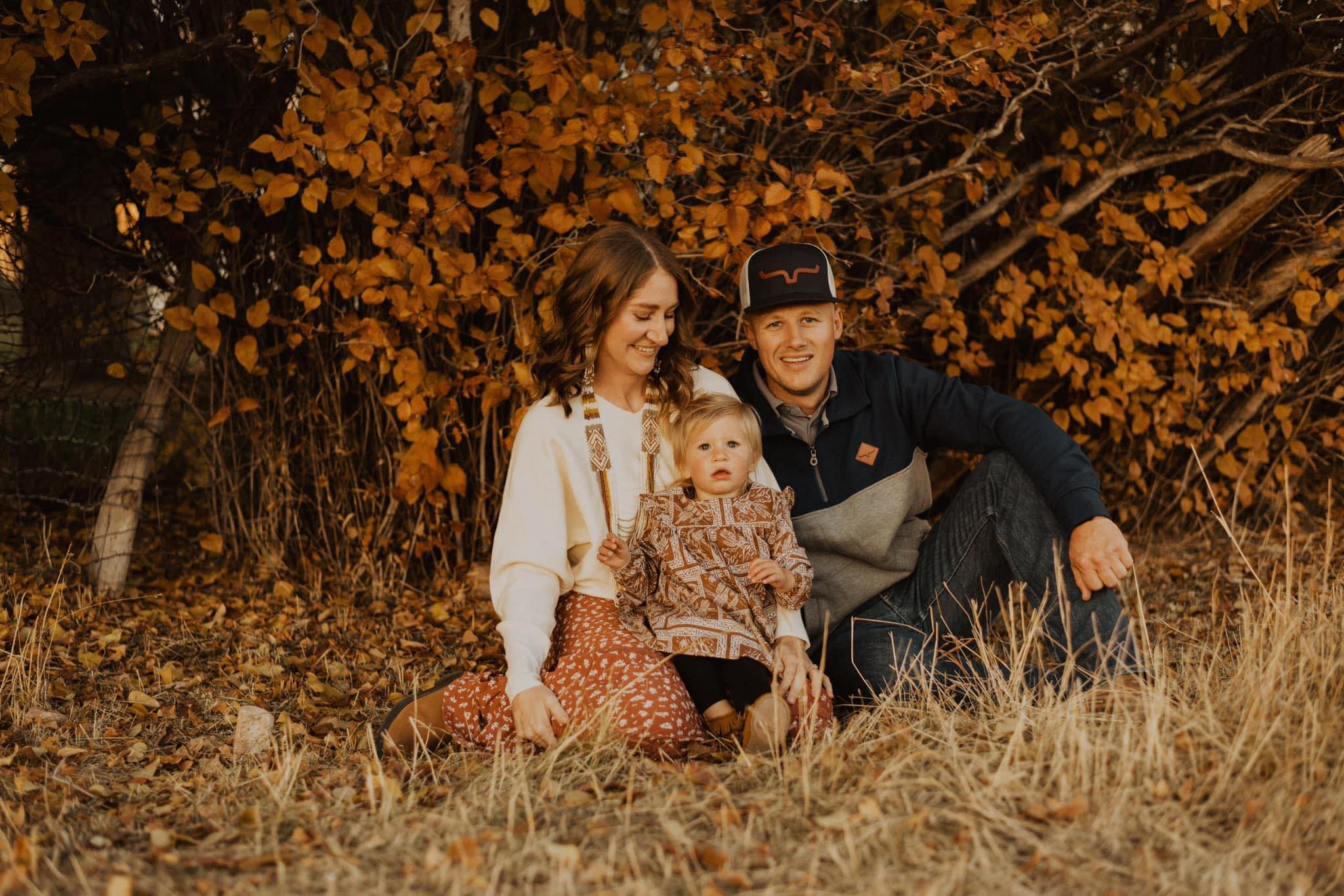YF&R Spotlight: Ranching isn’t just about cattle – it’s about family
Author
Published
4/4/2025
It was evening, and my husband, Jared, and I had just returned from a long weekend. As we settled into the house, dinner simmered on the stove, and we wrangled our two kids—our almost-four-year-old and our six-month-old. Jared had just returned from helping my brother-in-law feed cows despite having spent the previous night assisting my parents with a heifer that had suffered a uterine prolapse.
As we reflected on the craziness of our weekend, my mom called. She thanked Jared for helping both with the heifer and my brother-in-law. Then she said something that left a deep impression on both of us:
"That’s what family is for—to help each other in difficulty and hardship. We need to support one another in everything we do. That is what family is for."

Her words struck a chord, especially after the emotional weight of the past few days. Just before that, we had attended the funeral of our 18-year-old neighbor. It was a heartbreaking loss, and we had watched as our neighbors—people who would do anything for anyone—faced an unimaginable hardship.
But in the midst of their grief, we also witnessed the power of our rural community. Ranchers put their own chores on hold to deliver hay and feed our neighbor’s horses. Cars lined the streets as community members visited the grieving family. Young kids bundled up and shoveled their sidewalks without being asked. Everyone stepped up without hesitation because that’s what we do—we take care of each other like family.

Mom’s words stayed with me. Jared and I had chosen to move to Randolph after I finished my master’s degree, not just to be closer to my family’s ranch, but because we wanted to raise our children in a rural lifestyle. Growing up on cattle ranches taught us some of life’s greatest lessons—hard work, stewardship of the land and animals, love for God’s creations, and, above all, what it truly means to be a family.
In a world that often feels fast-paced and disconnected, there’s something truly special about a rural community bound by faith, hard work, and a deep sense of responsibility for one another. Whether it’s lending a hand during calving season, showing up in times of loss, or simply teaching our children the values we were raised with, ranching isn’t just about cattle—it’s about family. And not just the one we’re born into, but the one we build through our neighbors, friends, and the land we love. I’m grateful every day that our kids will grow up witnessing this kind of selflessness, learning that true wealth isn’t measured in cattle or acres, but in the strength of the community surrounding us.
Want more news on this topic? Farm Bureau members may subscribe for a free email news service, featuring the farm and rural topics that interest them most!
